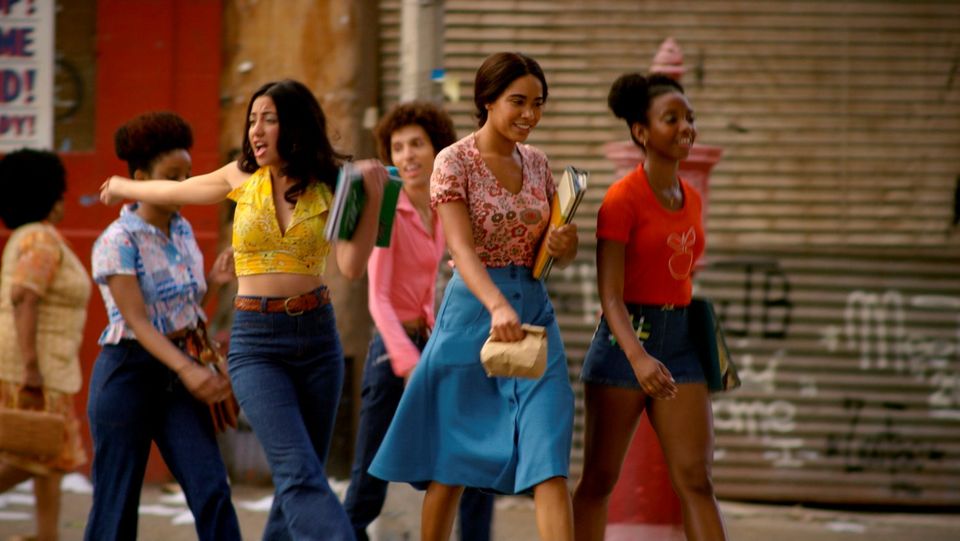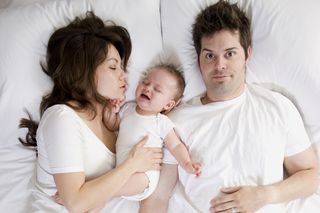Netflix's 'The Get Down' is further proof TV has surpassed cinema
Baz Luhrmann's latest project - a miniseries on Netflix - cost an eye-watering $120 million. Our critic says it's further proof TV has officially surpassed cinema
New obsession: ‘The Get Down’ traces the origins of hip hop in the Bronx during the 1970s
Baz Luhrmann's new project, 'The Get Down', is remarkable for several reasons. It features a rapping 'superhero' named Shaolin Fantastic with magical Puma running shoes (yes, really, it does). The first episode channels Michael Jackson's 'Smooth Criminal' video, with lashings of trademark sparkle from the director who brought us 'Moulin Rouge!' and the dashingly post-modern 'Romeo + Juliet' (the film that introduced the world to the idea of Leonardo DiCaprio as a movie star). But the biggest surprise of all is that Luhrmann fans will not need to purchase a cinema ticket and wait in line when 'The Get Down' debuts tonight. All they have to do is switch the television on.
At the end of what was surely the sorriest summer ever for blockbuster movies - and is particularly memorable for the double whammy of awful that was 'Batman v Superman' and 'Suicide Squad' - Luhrmann's defection to the small screen feels doubly significant.
It is further evidence that television rather than cinema is the dominant story-telling medium of our age. What movie of the past decade can rival the clout of - to pluck several random examples - 'Mad Men', 'Game of Thrones' or 'Breaking Bad'? Even the stuff that was supposed to linger in the memory has faded surprisingly quickly - who now cares a hoot for Christopher Nolan's 'Batman' trilogy? Or that adorable Saoirse Ronan film about… something (frocks, Wexford, boats?)… that we all loved last year?
Television, on the other hand, continues to surprise and delight. Though 'The Get Down' won't be to everyone's taste - if you found Luhrmann's 'Great Gatsby' adaptation flash and irreverent, this tale of rappers and rebels in late 70s New York will make you want to reverse over his foot - there is more innovation in the opening hour than in an entire summer of tent-poles.
Baz Luhrmann's The Get Down
Moreover, 'The Get Down' finds a way to convey the relatively well-known story of the birth of rap music amid the crumbling tower blocks of the south Bronx without coming off as a history lesson. In fact, it is probably the most interesting thing Luhrmann has done since 'Strictly Ballroom', blending the usual glitter with a surprising level of soul and insight.
"They're always doing the culturally new thing, which has a big impact," said Luhrmann of his decision to collaborate with Netflix. "They want you to lead them to a place they wouldn't have otherwise gone."
With the dawn of hip hop presenting an unusually broad canvas, he recognised that television was the best medium to tell the saga. This was a complex time period and the individuals concerned - a rag tag of graffiti artists and DJs - bore little resemblance to stereotypical Hollywood heroes. A sophisticated story required a sophisticated approach. "These young people did not (innovate) because they thought they were going to get rich or they would see their graffiti in museums one day," Luhrmann said to 'Variety'. "They were doing it because the city was saying 'You don't exist'."
Just a decade ago, it was unthinkable that a film-maker at Luhrmann's level of fame would work in television. Remember the surprise when Glenn Close took on a role in legal drama 'Damages'? People assumed her career was winding down and that she had eased into quasi-retirement.
That was in 2007. Yet when Kevin Spacey signed up for Netflix's 'House of Cards' in 2012, nobody blinked. In half a decade, the concept of an Oscar-grade actor doing television drama had become mundane. Spacey wasn't slumming it: his pursuit of excellence had led him to what nobody nowadays refers to as the "boob tube".
It isn't just actors and directors who have gravitated to television. Culturally it's where we are all at. How often have you chatted with friends about a new movie this year? But you've probably had countless exchanges about 'Game of Thrones', 'Mr Robot', 'Bojack Horseman' etc.
Tellingly, the major water cooler moment this summer happened not on the big screen, but on television, as we all rushed to marvel at 'Stranger Things'. Here was a show that captured the wonder and awe we felt watching 'E.T.' or 'Close Encounters of the Third Kind' for the first time. Movies aren't interested in taking our breath away any more. So television has assumed that task.
How did television come to steal cinema's thunder? One reason is that the gulf in visual quality between the two mediums has narrowed. Back in the day, cinematic moments were impossible on television. But thanks to flat-screen, high-definition TVs, the living room has become a movie house in miniature.
Plus, with so much television out there, programme makers are forced to stand out from the crowd, by focusing on innovation and quality. 'Suicide Squad' is backed by a multi-million dollar advertising campaign. 'Stranger Things', in contrast, received almost no promotion at all - it became a hit through old-fashioned word of mouth. People liked it and told their friends (or Twitter).
Similarly, 'The Get Down', which cost Netflix an eye-watering $120 million, will have a relatively low-key release this week. Luhrmann has gone out to bat for the project - yet it has been presented as a gem to be discovered rather than a juggernaut we are obligated to watch.
In other words, despite the budget and the calibre of those involved, 'The Get Down' will have the freedom to find an audience in its own time. That's how it used to be for movies, before the capes and the YA dystopias and the Seth Rogan bro-comedies that all boil down to the same poo-and-knob jokes. Cinema has given up trying to supply us with smart, grown-up entertainment - and television has been more than happy to step up.
'The Get Down' premieres on Netflix today
Join the Irish Independent WhatsApp channel
Stay up to date with all the latest news















